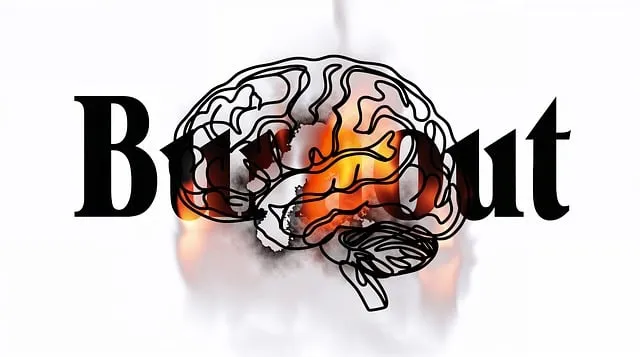The Longmont Kaiser Permanente mental health center reviews highlight successful cultural competency training, enhancing patient care for diverse communities. Through interactive workshops, group discussions, and role-plays, healthcare providers gain insights into different ethnic backgrounds, religious beliefs, and LGBTQ+ identities. This training bridges communication gaps, improves patient interactions, and leads to better personalized treatment plans. The result is improved mental health outcomes, increased patient satisfaction, and a trusted environment for discussing sensitive cultural issues, as reflected in the positive Longmont Kaiser Permanente mental health center reviews.
Healthcare provider cultural competency training is an essential component of modern medical care, especially in diverse communities. This article explores the critical role of training in enhancing patient outcomes and improving healthcare delivery. We present a case study of the Longmont Kaiser Permanente Mental Health Center, known for its effective cultural competency programs. Additionally, best practices are outlined to guide mental health care settings in implementing successful cultural competency training, drawing from real-world examples and expert insights. Longmont Kaiser Permanente mental health center reviews highlight the positive impact of these initiatives.
- Understanding Cultural Competency in Healthcare: The Role of Training
- Longmont Kaiser Permanente Mental Health Center: A Case Study on Effective Training Implementation
- Best Practices for Delivering Cultural Competency Training in Mental Health Care Settings
Understanding Cultural Competency in Healthcare: The Role of Training

Cultural competency in healthcare is an essential aspect that ensures patients from diverse backgrounds receive quality and respectful care. It involves understanding and appreciating cultural differences, traditions, and beliefs to bridge the gap between healthcare providers and diverse communities. Training plays a pivotal role in fostering this understanding. The Longmont Kaiser Permanente mental health center reviews highlight the increasing demand for culturally competent care, especially in addressing the unique needs of various ethnic, racial, and socio-economic groups.
By implementing comprehensive training programs, healthcare organizations like Kaiser Permanente can equip their staff with the necessary tools to navigate complex cultural landscapes. This includes learning effective communication strategies that transcend language barriers, understanding the impact of cultural norms on health behaviors, and developing inner strength to provide non-judgmental support. Enhancing mental health awareness through these training initiatives ensures that patients feel comfortable discussing sensitive issues related to their cultural identities.
Longmont Kaiser Permanente Mental Health Center: A Case Study on Effective Training Implementation

The Longmont Kaiser Permanente Mental Health Center stands as a shining example of effective cultural competency training implementation within the healthcare sector. By prioritizing education and awareness, the center has successfully enhanced its ability to cater to a diverse patient base, fostering an inclusive environment that promotes better mental health outcomes. Their comprehensive training programs focus on various aspects of cultural sensitivity, including understanding different ethnic backgrounds, religious beliefs, and LGBTQ+ identities.
Through interactive workshops, group discussions, and real-life scenario role-plays, healthcare providers gain practical insights into the unique challenges faced by patients from varied cultural backgrounds. This tailored approach not only improves patient interactions but also paves the way for more personalized treatment plans. The center’s commitment to ongoing training has led to positive Longmont Kaiser Permanente mental health center reviews, highlighting improved services and increased patient satisfaction, particularly in areas such as anxiety relief, mood management, and stress reduction methods.
Best Practices for Delivering Cultural Competency Training in Mental Health Care Settings

Cultural competency training is a critical component for mental health care providers to effectively serve diverse patient populations. At Longmont Kaiser Permanente mental health center, best practices are implemented to ensure these sessions are engaging and impactful. One effective strategy involves integrating real-life scenarios into role-playing exercises, allowing trainees to navigate complex cultural interactions with guidance. This hands-on approach fosters a deeper understanding of unconscious biases and promotes empathy, essential skills for building trust in diverse communities.
Moreover, combining traditional lectures with interactive workshops featuring mental health education programs design elements enhances knowledge retention. Encouraging participants to engage in emotional well-being promotion techniques like mindfulness exercises or mental wellness journaling exercise guidance can help them process and reflect on the training content. These practices not only support personal growth but also equip providers with tools to support patients’ emotional resilience, ultimately improving mental health outcomes within diverse cultural contexts.
Cultural competency training is an essential component of modern healthcare, especially within mental health care settings. As evidenced by the case study of Longmont Kaiser Permanente Mental Health Center, successful implementation can lead to improved patient outcomes and enhanced provider-patient relationships. By adopting best practices highlighted in this article, healthcare organizations can create more inclusive environments that better serve diverse populations. For those seeking mental health services, these efforts translate into increased accessibility, understanding, and ultimately, well-being. Longmont Kaiser Permanente mental health center reviews consistently praise their comprehensive training programs as a key driver of positive change.






